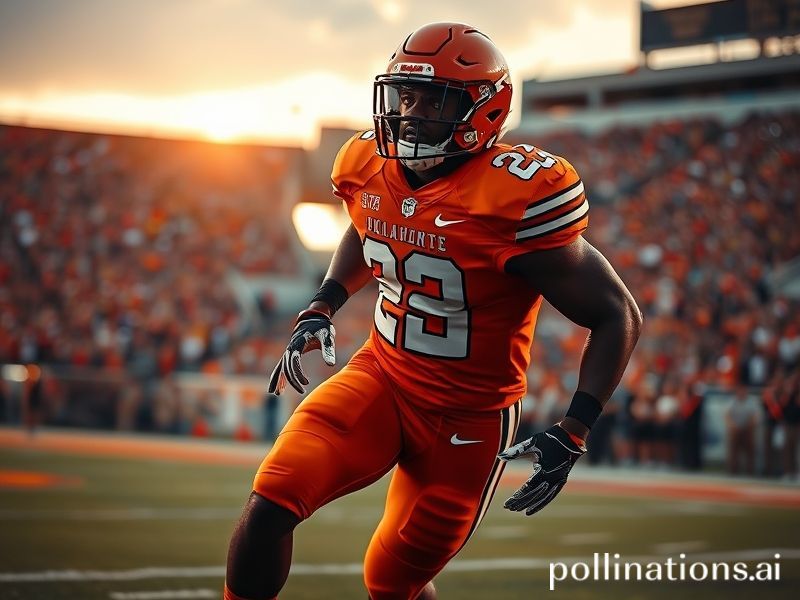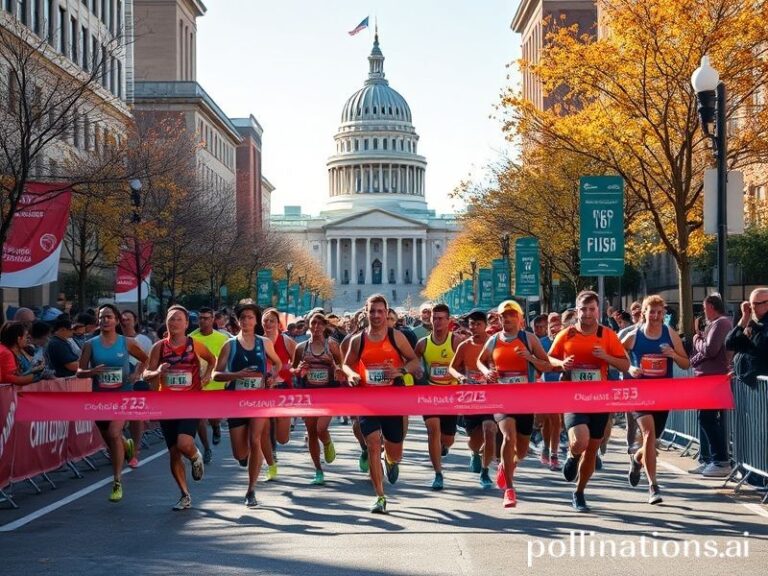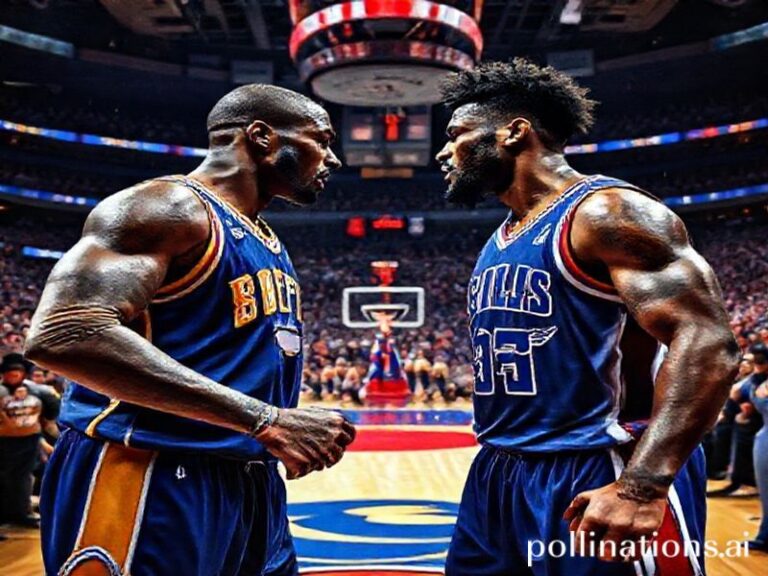chuba hubbard
Chuba Hubbard, the Canadian running back whose name sounds like a Bond villain’s accountant, is having a moment. While the NFL’s global marketing department is busy slapping team logos on cricket bats in Mumbai and bao buns in Shanghai, Hubbard quietly reminds the world that the league’s future passport stamps might actually be earned between the hash marks.
He was born in Edmonton, Alberta—oil country, where the only thing colder than the winters is the provincial government’s sense of humor. From there he sprinted south to Oklahoma State, becoming college football’s leading rusher in 2019, a year when most of the planet’s other pressing concerns involved a novel virus and an old American president live-tweeting bleach recipes. Hubbard’s 2,094 rushing yards that season weren’t merely stats; they were an export commodity, proof that polite, maple-scented teenagers can still bruise egos from Texas to Tuscaloosa.
Now in Carolina with the Panthers—a franchise whose greatest international achievement to date is accidentally being mistaken for a large cat sanctuary—Hubbard operates as both ball-carrier and geopolitical metaphor. Every time he breaks into the second level, somewhere in Zürich a risk analyst adjusts the Swiss valuation of American football futures. The NFL’s international rights deals are worth billions; Hubbard’s four-yard gains on third-and-three are the micro-transactions that keep the ledger humming.
But let’s not kid ourselves: the real intrigue is visa-related. The league currently treats global talent like artisanal coffee—rare, pricey, and usually overhyped. Hubbard, however, isn’t some gimmick import; he’s a walking, cutting reminder that North American football’s talent pipeline now extends past the Rio Grande and the 49th parallel. If the NFL ever fields a permanent franchise in London or Mexico City, the template won’t be built around a quarterback who once vacationed in Cancun. It’ll rest on players like Hubbard, whose passport was issued by a Commonwealth country that still puts the Queen on its twenties (for now).
Meanwhile, back in Canada, the CFL continues its dignified slide into irrelevance, like a polite guest who realizes the dinner party ended three hours ago. Hubbard’s success abroad is therefore a small, personal revenge for every Canadian kid who was told the only way to gridiron glory was through Regina in November. Every stiff arm he delivers is, in spirit, directed at the ghost of bureaucratic gatekeeping.
Globally, his rise coincides with the world’s rediscovery of scarcity. Oil shocks, wheat shortages, microchips—pick your crisis. Against that backdrop, a 23-year-old who can average 5.3 yards per carry looks less like an athlete and more like a strategic reserve. If central banks hoard gold, NFL GMs hoard cap space; Hubbard is currently undervalued on both counts, a two-fer of arbitrage for whichever franchise decides the future is multilingual.
And then there’s the jersey sale angle. In Tokyo’s Shibuya district, Panthers No. 30 shirts have begun appearing next to vintage Ichiro jerseys, a merchandising fluke that probably delights David Tepper’s accountants and horrifies traditionalists who still think football should be played only where you can get a decent cheesesteak. Each export adds a fractional cent to America’s balance of trade, proof that late capitalism can monetize literally anything, including a kid from Sherwood Park, Alberta.
So what does Chuba Hubbard ultimately signify? Simply this: in an era when borders harden and supply chains snap, a 215-pound Canadian with 4.5 speed is the rare export that clears customs without a tariff. He runs, therefore the rest of us—spreadsheet jockeys in Frankfurt, factory workers in Guadalajara, doom-scrollers in Lagos—can pretend the global village still has a playing field rather than a minefield.
And if the Panthers ever win a Super Bowl on the back of a Hubbard fourth-quarter stampede, remember to thank not just the offensive line but international air travel, NAFTA’s lingering ghost, and the small miracle that a kid from the Great White North learned to cut in the open field faster than most governments can process a simple work permit.







